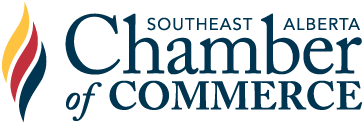Both adaptation and transformation refer to the process of change, but the motivation and approach is what differs. Adaptation is a reaction to or anticipation of new conditions or environment. Whereas transformation is change that is physically or qualitatively different. Transformation may also be a response and reaction of conditions; however transformation may also be a deliberate and intentional change and challenge of the systems, structures, behaviours and mindsets - taking the approach that we have the ability to influence change, rather than just adapt to it. Both can be incremental, one is necessary for survival, whereas perhaps the other is more essential to how we thrive and grow.
We know we won't go back to the way things were after COVID-19. Too much has changed and far too many things have transformed our way of thinking about life, business and our economy. We have adapted our business models, adopted new technologies, determined new and sometimes more efficient ways of working, changed what we offer and how we offer it and it's starting to become commonplace.
We have changed how we communicate, how we work, how we interact and how we treat and respond to others. Some are working at a rapid pace on response, others have perhaps struggled to find their place, while still others are in a state of anxiety, stress and uncertainty - all are very understandable in the current environment.
Governments have had to respond at an exponential pace and have discovered efficiencies and adaptation in delivering programs and governing our country and provinces. We have experienced the capabilities of remote work and virtual meetings, not only on a local level, but across our Governments.
I find it fascinating, albeit not surprising, that our Government is quite capable of holding virtual proceedings and making responsive decisions based on both health and the economy - for both people and prosperity. All of this has left me wondering about the future and what our approach will be.
Perhaps more people would be willing to run for politics if it didn't mean they would have to be away from their home and their constituency for 4 to 5 days a week - they could actually work and serve within the community that they live.
Advocacy and our collaboration with Government will most certainly shift moving forward. We now know what's possible and how rapidly decisions can be made and modified and how quickly we are capable of moving. We have witnessed the benefit of ongoing collaboration and a Team Canada approach, bringing organizations, associations, industry leaders, labour groups, workers and Government all together to have robust conversations in the best interest of our people, our community, our economy and our country in a rapid response environment.
Some organizations will adapt, others will transform, still others may not survive as a result of programs/supports not being available quickly enough, but we can be certain, we will all grow as a result.
While this has been an extremely challenging time, we have to focus on what this experience is teaching us; what opportunities it's providing us and what perspectives it's giving to us. While we know life won't be the same, we have the ability to work collaboratively to shape our future, to create a new path forward and to sculpt and mold our future together.
In our world of tomorrow, it only makes sense to continue many of the practices we are learning - as out of crisis comes strength, focus, resilience and perseverance.
That's an exciting prospect and something we should all want to be a part of, having a vested interest in our ability to influence outcomes as we move forward.
In the meantime, make sure you have the supports and information that are available to help you adapt and transform as we relaunch our economy. You can find it all at https://www.medicinehatchamber.com/covid19/
